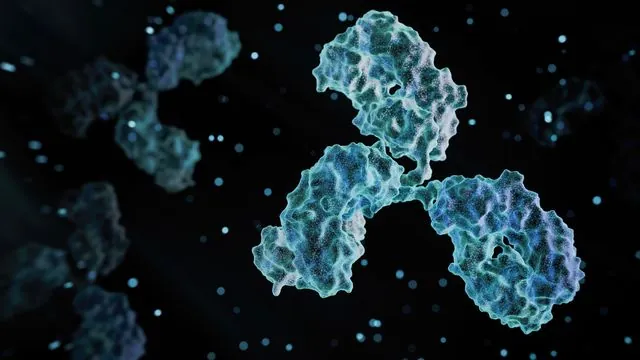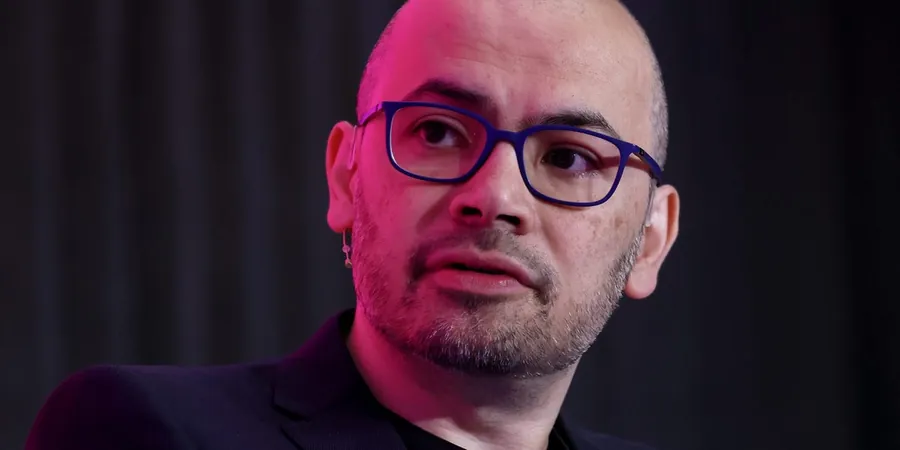
Breakthrough in HIV Vaccine Research: A Promising Step Towards Broad Immunity
2025-05-19
Author: John Tan
Imagine a world where HIV, which currently affects approximately 40 million people globally, is no longer an imminent threat. Tragically, in 2023 alone, over 600,000 individuals lost their lives to HIV-related illnesses. Despite being the second deadliest infectious disease—only tuberculosis claims more lives—there is still no vaccine available. However, researchers from Amsterdam UMC just made a significant breakthrough, publishing promising results from their Phase One clinical trial in the prestigious journal, *Science*.
The Quest for a Preventative HIV Vaccine
According to Tom Caniels, a postdoctoral researcher at Amsterdam UMC and the study's lead author, the key to a successful preventive HIV vaccine lies in inducing broadly neutralizing antibodies—immune responses capable of combating various strains of the virus. While a handful of individuals infected with HIV have developed such antibodies, training the immune system to do so through vaccination has proven nearly impossible until now.
Innovative Strategies and Collaborative Efforts
In a groundbreaking collaboration with Rockefeller University, Weill Cornell Medicine, and nine other American institutions, the Amsterdam team focused on a "germline-targeting strategy." This cutting-edge approach was made possible thanks to the National Institutes of Health’s (NIH) HIVRAD grant program funding, which is dedicated to advancing vaccine design. Their innovative vaccine, dubbed GT1.1 Env trimer, was administered in a clinical trial funded by the Gates Foundation, involving 47 participants that received either a high dose, a low dose, or a placebo.
Promising Early Results
The results were encouraging: researchers observed antibody production across participants, indicating they were heading in the right direction. According to Rogier Sanders, a Professor of Virology at Amsterdam UMC and senior author of the study, the team is now poised to further stimulate these immune cells for an optimal response. "We can target the right cells with atomic precision," he remarked, highlighting the potential of their findings.
A Beacon of Hope in Global Health
As international collaborative studies like this one navigate uncertain futures, experts like Constance Schultsz, Professor of Global Health at Amsterdam UMC, emphasize the significance of these results. "This positive outcome is a major milestone achieved through the steadfast ingenuity of researchers around the world. We must ensure that follow-up studies proceed as planned, given their potential for a global impact if successful," she stated.
The road to an effective HIV vaccine may still be long, but with such promising advancements, there’s renewed hope for the millions affected by this virus. Let's celebrate these milestones in science and continue pushing towards a future free from the shadows of HIV.



 Brasil (PT)
Brasil (PT)
 Canada (EN)
Canada (EN)
 Chile (ES)
Chile (ES)
 Česko (CS)
Česko (CS)
 대한민국 (KO)
대한민국 (KO)
 España (ES)
España (ES)
 France (FR)
France (FR)
 Hong Kong (EN)
Hong Kong (EN)
 Italia (IT)
Italia (IT)
 日本 (JA)
日本 (JA)
 Magyarország (HU)
Magyarország (HU)
 Norge (NO)
Norge (NO)
 Polska (PL)
Polska (PL)
 Schweiz (DE)
Schweiz (DE)
 Singapore (EN)
Singapore (EN)
 Sverige (SV)
Sverige (SV)
 Suomi (FI)
Suomi (FI)
 Türkiye (TR)
Türkiye (TR)
 الإمارات العربية المتحدة (AR)
الإمارات العربية المتحدة (AR)